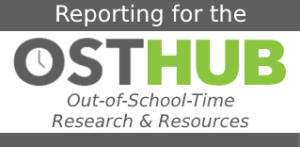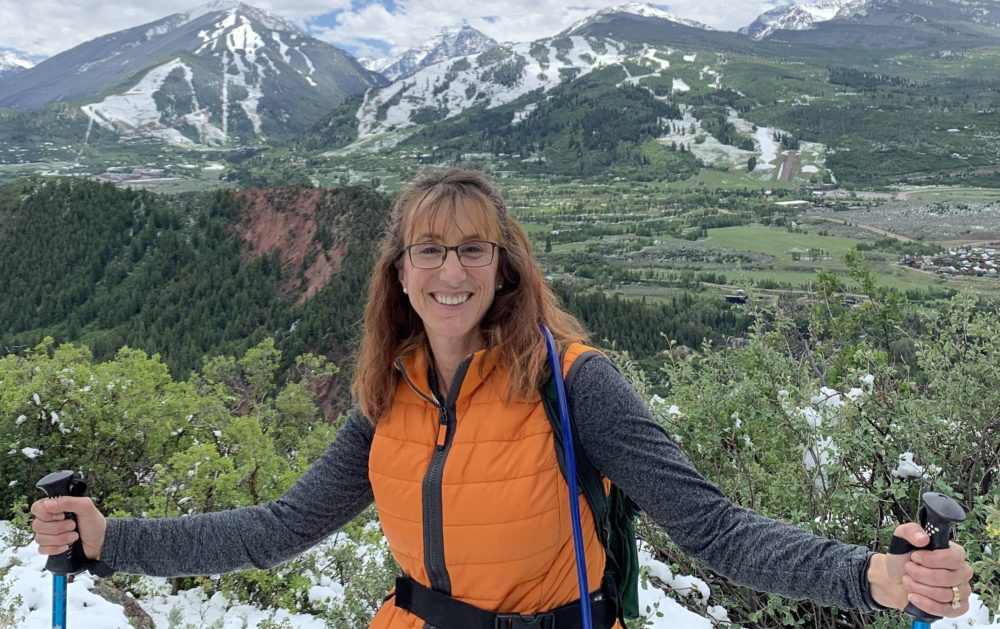For more than 15 years, Jodi Grant has guided advocacy efforts as executive director of the Afterschool Alliance, a national organization bent on expanding access to afterschool programs. During her tenure, she experienced many rewarding moments, but the one that really stands out — the organizational accomplishment she says she is most proud of — was when they secured federal reimbursement to feed kids meals in afterschool programs.
 “It was huge,” Grant said. “Because now we are feeding kids full meals, not just snacks.”
“It was huge,” Grant said. “Because now we are feeding kids full meals, not just snacks.”
Grant says advocacy organizations like hers have allowed tens of millions of families to benefit from afterschool programming. If it wasn’t for advocates, she says, afterschool programs wouldn’t have any federal funding.
Grant wasn’t always a die-hard afterschool advocate. She was in law school when she got the itch. In her remarks below, Grant discusses how she landed on a career path in afterschool and some silver linings that have come out of the pandemic.
The conversation
How you did end up working in the afterschool space?
I always loved kids. Even in high school, when I wasn’t waitressing to earn money, I was always a camp counselor. During my freshman summer when I was in college, I worked in a summer learning program. I had a group of middle school students that I was teaching English to, and we came up with the idea to write a newspaper. The kids came up with story ideas, interviewed people and took pictures. Then when I was in law school, I was a “big sister. ” I also spent a term working for the Youth Law Center with incarcerated youth. When I graduated from law school, I decided that I didn’t want to go work for a law firm. My passions were in the area of civil rights, equity, positive youth development, juvenile justice, education.
What is the most pressing issue impacting the afterschool space today?
The biggest issues have been staffing and space, both of which have been exacerbated by COVID. Programs across the country are all grappling with this in various ways. All the COVID safety protocols make it very challenging, especially with delta, and the pandemic still surging, which means they have to have smaller groups of kids and space them out. So, you need more staff to spend more time and more space. We’re looking at waiting lists of kids to get in because of either staffing shortages of space shortages. A program that used to serve 200 kids can’t follow safety protocols and still serve 200 kids, so they need more space as well as more staff.
Have there been any silver linings for the afterschool field arising out of the pandemic?
Yes, absolutely there’s been a huge silver lining: A recognition that learning happens all the time. And that kids do not need to physically be in a classroom with the teacher to learn. Throughout the pandemic, what we saw was the creation of learning centers or learning hubs where a child could come to what was once an afterschool program, but now all day long, engage in a combination of virtual learning and hands-on tutoring and in-person enrichment.
We are really hoping this will lead to the idea of “Community Learning Centers,” where these learning hubs can supplement what kids are doing in school all the time. It could be to learn things that aren’t offered in their schools, like coding classes. Ideally, kids would earn credits that would be transferable to their schools. For older youth, we have internships and apprenticeships and actual jobs. There’s no reason kids shouldn’t get credit for that, too. It is about creating a model that allows more flexibility outside the school day and for kids to get credit for the work they’re doing.
Another silver lining to come out of the pandemic is a windfall of federal money earmarked for afterschool programs. Without getting too wonky, can you tell me about that $30 billion? Is that all going to afterschool?
Not exactly. The American Rescue Plan sets aside $30 billion to address learning loss over the course of three to four years. It’s huge. About $22 billion goes primarily to local education agencies for Title 1 schools (school districts with high rates of poverty). The remaining $8 billion is for state education agencies. We have very much been trying to encourage state education agencies to look at their pot of money. That’s because state education agencies can give that money directly to afterschool programs that partner with schools. Right now, we’re tracking that about half the states are doing that, which is really exciting. The other states, unfortunately, are just sending the money out to the local agencies.
Kids are now getting vaccinated for COVID-19. Do you think that’s going to make it easier or harder for afterschool programs?
One of the things we’re seeing, and it’s not just vaccination but in regarding all sorts of responses to COVID, is that it really varies from locality to locality. In Washington DC, I think the vast majority of families and schools support vaccinations and masks, and hopefully that will reduce risk and make it easier to have programs. But you have other communities where the parents or schools are not supportive of vaccinations and are not masking. Different communities have very different attitudes on what they need to do to combat COVID. We’re seeing afterschool programs becoming piecemeal. There’s no one solution to all this because it’s different everywhere.
We are not experts on COVID-19, but I will say this: I am a big believer that we should do as much as possible in person with kids. Of course, safety has to come first. Isolating adults is bad enough; isolating kids is really detrimental on multiple levels. And I say that not just as an advocate, but also as a parent.
The details
Title: Executive director of Afterschool Alliance
Residence: Washington D.C.
Hobbies: “I love to bike — which is kind of amazing given how many horrible biking accidents I’ve had. I was hit by a car and I broke my neck, my back, my teeth and my nose. But I still get out on the bike because I love it.”
Prior employment: Director of Work and Family Programs, National Partnership for Women & Families; General Counsel to the Senate Budget Committee; staff director for a Senate Committee
Education: Law degree from Harvard Law School; undergraduate degree from Yale University






























